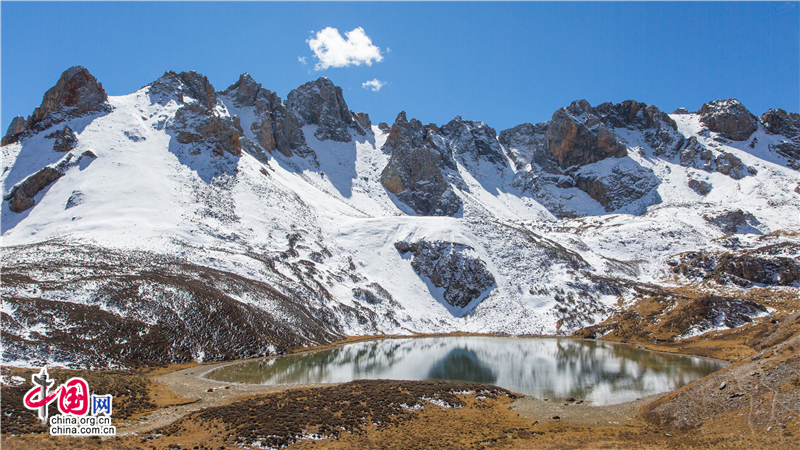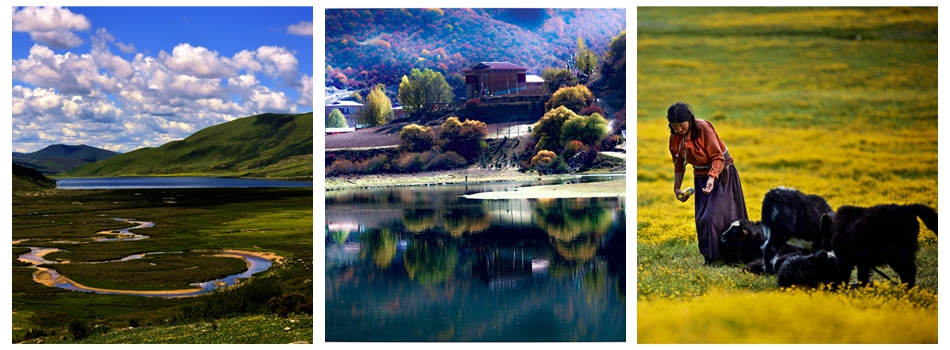Baiyu, an auspicious and virtuous place on West Sichuan Plateau
 0 Comment(s)
0 Comment(s) Print
Print E-mail China.org.cn, November 30, 2017
E-mail China.org.cn, November 30, 2017

The Tibetan word which is transliterated into“Baiyu”means“an auspicious and virtuous place.”Administered by Garze Tibetan Autonomous Prefecture, Sichuan, Baiyu lies in the transition between east Qinghai-Tibet Plateau and Yunnan-Guizhou Plateau and belongs to the north section of Hengduan Mountains.
Located on the east bank of the upper reaches of Jinsha River, Baiyu faces Tibet’s Chamdo across the river, the headwaters of the Yangtze River.
With an altitude of 3,030 meters, Baiyu features a continental monsoon climate. Its has an annual average temperature of 7.7 ℃, an annual precipitation of 600 millimeters, a frost-free season of 156 days and an annual sunshine duration of 2,134 hours. To sum up, Baiyu has ample sunshine, distinct dry and wet seasons, a big differen between day and night temperatures, and a short frost-free season.
Baiyu has rich ecological resources and Tibetan culture. It has a long tradition of Tibetan Buddhism. Local forests and grasslands have all been kept complete in their original state. It also boasts rich biodiversity and thus serves as an important ecological shield in the upper reaches of the Yangtze River and an ecological zone for conserving biodiversity in forests of Sichuan and Yunnan.
It is home to 55 kinds of animals that are among Class I and II protected species designated by the national government; it is also home to over 640 kinds of understory vegetation and traditional Chinese medical herbs; it has 8.55 million mu of natural grasslands and 250,000 hectares of forest with a forest coverage rate of 47 percent. Its growing stock stands at 40.57 million cubic meters, comprising primarily pines, firs, cypresses and birches and ranking second in Sichuan. Especially, the Chaqingsongduo National Nature Reserve, Lalongcuo National Wetland Park and Shaluli National Forest Park, which cover the entire Baiyu County, constitute the biggest ecological wealth of the county.
With abundant ecological resources and amazing natural landscape, Baiyu is hailed as a bright pearl of eco-tour along the Jinsha River.
Baiyu also boasts splendid culture, represented by the Geba Culture in Shanyan (the last primitive patriarchal tribe in China), the ruins of Sama Kingdom which was originally built in 1263 and distinctive court dances.
Hepo Tibetan Blacksmithing, a national intangible cultural heritage, has earned Baiyu the reputation of“Hometown of Tibetan Handicraft.”Handicraft works made with this technique are beautiful in shape, simple and unsophisticated in color and exquisite in workmanship. They are both of practical and artistic value.
Baiyu County also contains 35 Tibetan Buddhist temples.





Go to Forum >>0 Comment(s)